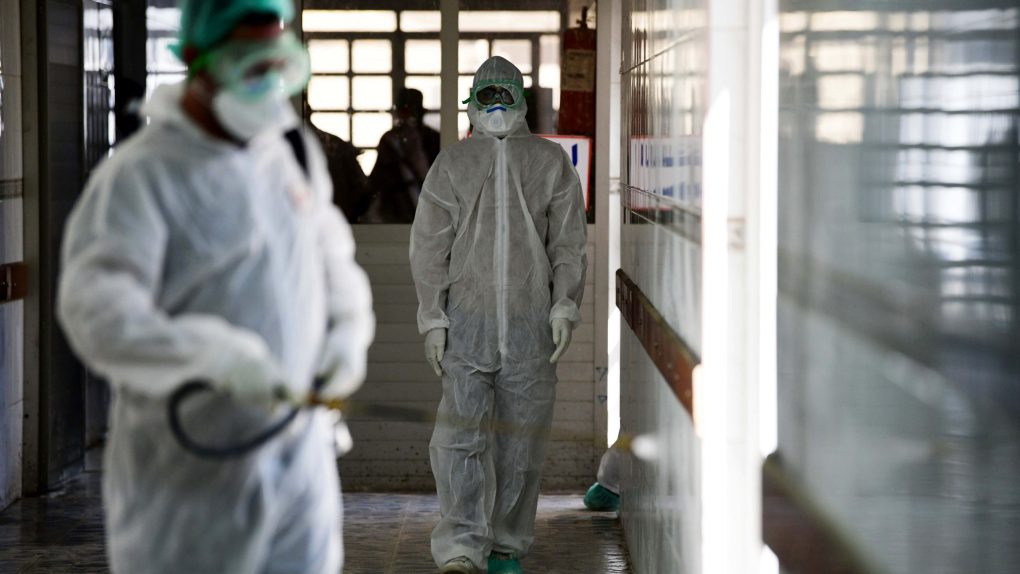- Research from Australia determined that the immune system’s response to the SARS-CoV-2 coronavirus that causes the COVID-19 disease is similar to a reaction to the flu in mild-to-moderate cases.
- Their findings can be used to accelerate the development of a vaccine and treatments, as well as novel tests that might be able to determine the severity of a coronavirus infection from the onset.
- The research proves the human body can become immune to the virus, but it’s still not clear how long the immunity lasts.
- Visit BGR’s homepage for more stories.
The coronavirus pandemic is far from being contained, with countries all over the world reporting more and more cases. It’s up to everyone to step up and do their part to flatten the curve — social distancing and handwashing will help do the trick — so that medical systems around the world aren’t overwhelmed. Doctors need time to treat severe cases while some of their peers attempt to develop vaccines or new drugs that will speed up the healing process. The good news for people who catch the new COVID-19 virus is that most people will recover, and that’s because of the body’s immune system. Researchers in Australia have already figured out how the body kills the SARS-CoV-2 virus, and their early results will help others develop new treatments that could extend immunity, and maybe even eradicate the disease.
Australian researchers discovered that the human body fights the infection the same way it would deal with the regular flu. The conclusion is valid for mild-to-moderate cases for the time being, which leads to full recovery. It’s still unclear how long the immunity lasts and there’s no guarantee that once healed, the body will not contract the same COVID-19 disease again.
“The immune cell populations we have seen emerging before patients recover are the same cells that we see in influenza,” Laboratory head Katherine Kedzierska told ABC News Australia. “This information will allow us to evaluate any vaccine candidate as in an ideal world, the vaccine should mimic our body’s immune response.”
Researchers from the Peter Doherty Institute for Infection and Immunity were the first in the world to explain the immune system’s mechanism for dealing with the coronavirus because they have been preparing for such a threat for years. A “research preparedness platform” led by infectious disease specialist Irani Thevarajan had already developed the logistics required to deal with the arrival of a new virus as fast as possible. Existing protocols helped them fast-track the research, saving precious time. “Sometimes the delay could have been months … it wouldn’t have been from patient to research in four weeks,” she said.
The researchers analyzed blood samples from a woman in her 40s, one of the first coronavirus patients in Australia, who was admitted to a hospital with symptoms including lethargy, sore throat, dry cough, and fever after a trip to Wuhan, the Chinese region where it all began.
“We found in this patient at three days, we could see emergence of immune cells in the blood,” Kedzierska said. “Based on our experience with patients with influenza, we could predict recovery, and that’s exactly what happened in COVID-19.”
Aside from developing a vaccine, the new findings might help doctors determine the progress of a patient. Markers in the blood could be used to see if a patient will develop more severe symptoms, which could be a key achievement for fighting COVID-19. Doctors would be able to tell upfront whether a case is severe or mild, and then take appropriate measures.
The reason why governments around the world are trying to limit the spread of the disease concerns the severe cases which have to be admitted into hospitals, with treatments including intubation and ventilation of the patient. The more people get infected, the higher the number of severe cases that need to be admitted to intensive care. And that’s the kind of thing that can lead to the collapse of local medical systems.
The scientists will also analyze the immune system’s response in severe COVID-19 cases, in an effort to come up with new lines of treatment.
Professor Kedzierska also noted that it’s too early to tell how good the acquired immunity is. “The next question is whether that immune response gives people immunity for weeks or months or years, so we are protected,” she said, but the answer will only come in the coming months, as researchers check with recovered patients.
The Peter Doherty Institute’s COVID-19 coronavirus research has been published in Nature Medicine.








